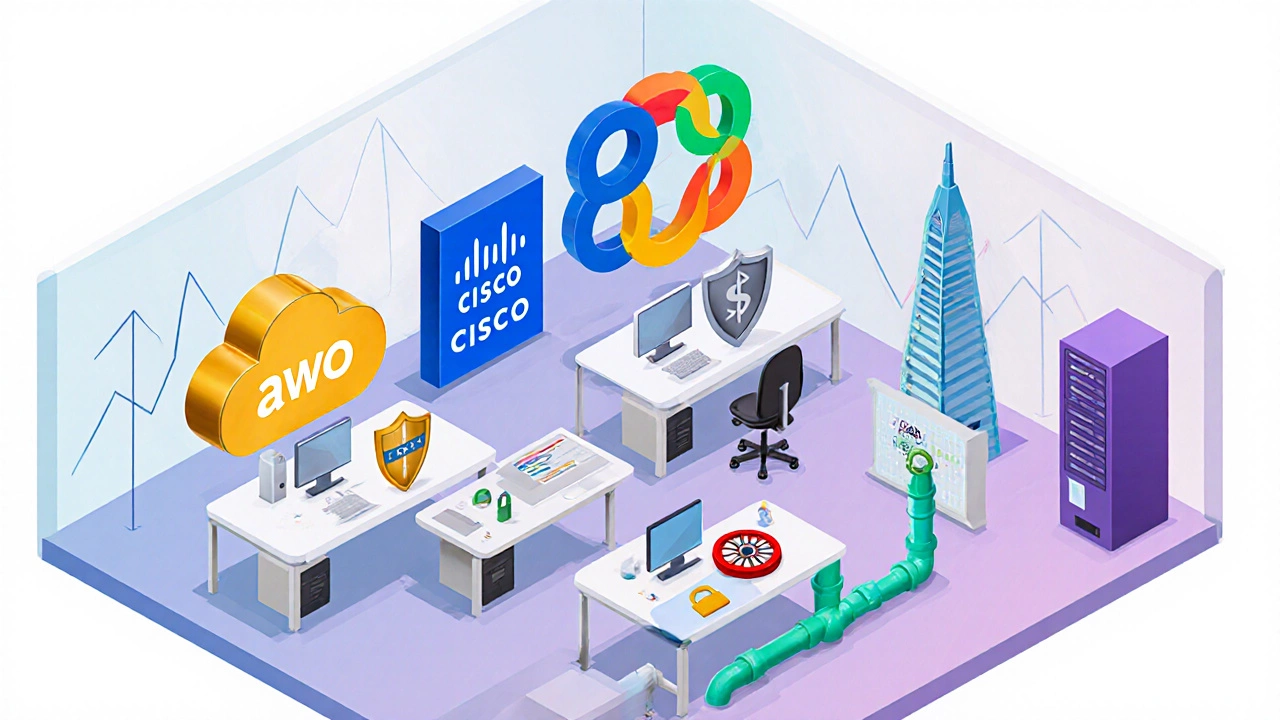IT Certification ROI Calculator
Calculate Your Certification ROI
Estimate your return on investment for top IT certifications using real salary data from 2025 surveys
When we talk about IT certification is a credential that validates a professional’s expertise in a specific technology or methodology, often leading to higher salaries and better job prospects, the focus is usually on the financial upside.
If you’re hunting for the highest paying IT certification, this guide breaks down the numbers, explains why some credentials out‑earn others, and shows you how to calculate the real return on investment.
What Drives IT Certification Salaries?
Salary isn’t just about the paper you hold. A handful of factors shape how much employers are willing to pay:
- Market demand. Cloud, security, and data‑analytics roles have seen double‑digit growth year after year, pushing the price tag on related credentials.
- Depth of expertise. Senior‑level exams (often called "Professional" or "Expert" tracks) test broader architecture knowledge, so they command higher pay.
- Geography. Salaries in the United States, United Kingdom, and Australia sit above the global average, while emerging markets offer lower yet still competitive figures.
- Industry sector. Finance, healthcare, and defense pay a premium for security‑focused certs because the cost of a breach is huge.
- Experience level. A fresh graduate with a certification may earn less than a mid‑career engineer who adds the same cert to a solid track record.
Understanding these variables helps you interpret salary data more accurately and choose a credential that aligns with your career stage.
Top 10 Highest‑Paying Certifications in 2025
Below is a snapshot of the certifications that consistently rank at the top of salary surveys from sources like Global Knowledge, PayScale, and Robert Half.
| Certification | Average Salary (US) | Median Salary (UK) | Typical Roles | Required Experience |
|---|---|---|---|---|
| AWS Certified Solutions Architect - Professional | $165,000 | £95,000 | Cloud Architect, Solutions Engineer | 5+ years in cloud design |
| Google Cloud Professional Cloud Architect | $162,000 | £92,000 | Cloud Architect, DevOps Lead | 4+ years with GCP |
| Cisco Certified Internetwork Expert (CCIE) | $158,000 | £90,000 | Network Engineer, Solutions Architect | 5+ years networking |
| Microsoft Certified: Azure Solutions Architect Expert | $155,000 | £88,000 | Azure Architect, Cloud Consultant | 4+ years Azure |
| Certified Information Systems Security Professional (CISSP) | $150,000 | £85,000 | Security Manager, Senior Analyst | 5+ years security |
| Project Management Professional (PMP) | $145,000 | £82,000 | IT Project Manager, Program Lead | 3+ years project work |
| Certified Data Professional (CDP) - Data Engineering | $143,000 | £80,000 | Data Engineer, Big Data Architect | 4+ years data pipelines |
| CompTIA Security+ | $120,000 | £68,000 | Security Analyst, Junior Engineer | 0-2 years IT security |
| VMware Certified Professional - Data Center Virtualization (VCP‑DCV) | $118,000 | £66,000 | Virtualization Engineer, SysAdmin | 2+ years virtualization |
| Certified ScrumMaster (CSM) | $115,000 | £64,000 | Agile Coach, Scrum Master | 1+ years agile work |
Note: Figures are averages from 2024‑2025 salary surveys; individual pay can vary based on company size, location, and negotiation skill.
How to Calculate the ROI of a Certification
Before you spend $500-$3,000 on training, run a quick ROI test:
- Identify your current total compensation (salary + bonuses + benefits).
- Estimate the post‑certification salary range from the table above.
- Subtract the cost of the exam, study materials, and any lost work hours.
- Divide the net salary increase by the total cost; a result above 2.0 means you earn back your investment in less than two years.
Example: A UK server engineer earning £70,000 lands a CCIE, bumps the salary to £90,000. If the exam and prep cost £4,000, the net increase is £16,000 per year. ROI = £16,000 / £4,000 = 4.0 - a solid payback in six months.

Choosing the Right Certification for Your Career Path
Don’t chase the biggest paycheck without checking fit. Ask yourself:
- What industry excites you? Cloud‑focused roles thrive in tech and finance, while security is hot in healthcare and government.
- Do you prefer architecture or hands‑on implementation? Architect‑track certs (AWS, Azure, GCP) lean toward design; VCP‑DCV or CompTIA Security+ stay more operational.
- How much experience do you already have? Senior‑level exams assume years of practice; jumping straight to a professional‑level cert can be wasteful.
Match the certification’s skill map to your current résumé, then plot a realistic upgrade path. For example, start with AWS Certified Solutions Architect - Associate, gain a year of cloud work, then move to the Professional level for the salary jump.
Tips to Maximize Earnings After Certification
- Update your LinkedIn profile instantly. Add the badge, describe the projects you can now lead, and request endorsements.
- Leverage the credential in job negotiations. Cite the salary data from the table and ask for a raise or higher starting offer.
- Take on high‑visibility projects. Employers reward those who apply the new skill to real‑world challenges.
- Stay current. Cloud and security certifications often require recertification every two to three years-maintain it to keep the pay premium.
- Network in certification communities. Forums, local meet‑ups, and virtual user groups often share hidden job opportunities.
Common Pitfalls to Avoid
Even the smartest professionals stumble when they ignore these traps:
- Chasing the hype without a job market. Not all regions have enough demand for a niche cert, leading to stagnant pay.
- Skipping hands‑on labs. Theory alone won’t convince employers; be able to build, troubleshoot, and document solutions.
- Neglecting soft skills. Communication, stakeholder management, and business acumen often decide salary offers more than the badge.
- Letting the cert expire. An outdated credential can actually hurt your credibility.
Bottom Line: Your Path to a Higher Salary
There’s no one‑size‑fits‑all answer, but the data shows a clear trend: cloud architect, network expert, and security leader roles dominate the top‑pay bracket. Pair a high‑value certification with relevant experience, negotiate intelligently, and keep the credential alive, and you’ll see a measurable bump in your paycheck.
Which certification offers the highest average salary in the United States?
According to 2025 Global Knowledge data, the AWS Certified Solutions Architect - Professional tops the list with an average salary of about $165,000 per year.
Do entry‑level certifications like CompTIA Security+ pay well?
They provide a solid foundation and can boost earnings by 10‑15 % for junior roles, but the real salary jump happens when you combine them with experience or a senior‑level cert.
How often must I recertify to keep the salary premium?
Most vendor‑specific certs (AWS, Azure, Google Cloud, Cisco) require renewal every two to three years, either through a new exam or continuing education credits.
Is ROI always positive for high‑cost certifications?
Generally yes, but only if you can secure a role that values the credential. Without a matching job, the payback period can stretch beyond five years.
What’s the best first step after getting a new certification?
Update your professional profiles, add the badge to your résumé, and start looking for projects or positions that explicitly list the certification as a requirement.





Write a comment